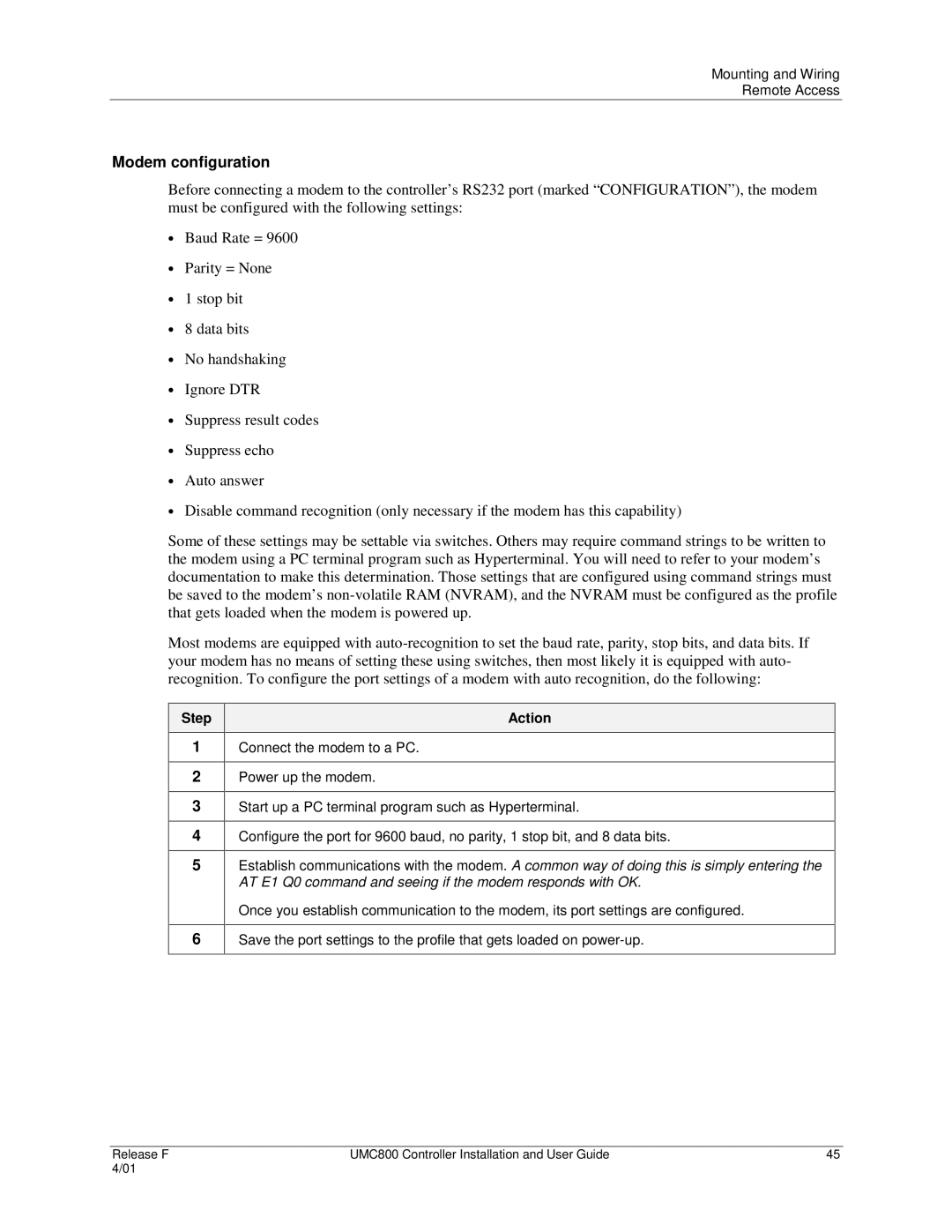
Mounting and Wiring
Remote Access
Modem configuration
Before connecting a modem to the controller’s RS232 port (marked “CONFIGURATION”), the modem must be configured with the following settings:
•Baud Rate = 9600
•Parity = None
•1 stop bit
•8 data bits
•No handshaking
•Ignore DTR
•Suppress result codes
•Suppress echo
•Auto answer
•Disable command recognition (only necessary if the modem has this capability)
Some of these settings may be settable via switches. Others may require command strings to be written to the modem using a PC terminal program such as Hyperterminal. You will need to refer to your modem’s documentation to make this determination. Those settings that are configured using command strings must be saved to the modem’s
Most modems are equipped with
Step
1
2
3
4
5
6
Action
Connect the modem to a PC.
Power up the modem.
Start up a PC terminal program such as Hyperterminal.
Configure the port for 9600 baud, no parity, 1 stop bit, and 8 data bits.
Establish communications with the modem. A common way of doing this is simply entering the AT E1 Q0 command and seeing if the modem responds with OK.
Once you establish communication to the modem, its port settings are configured.
Save the port settings to the profile that gets loaded on
Release F | UMC800 Controller Installation and User Guide | 45 |
4/01 |
|
|
